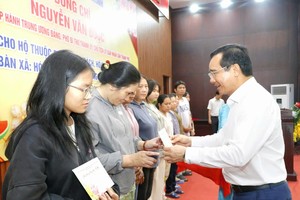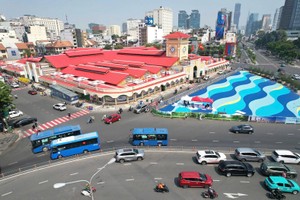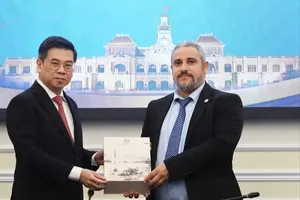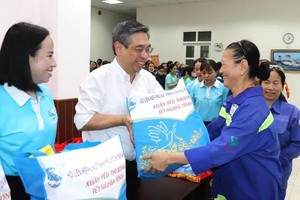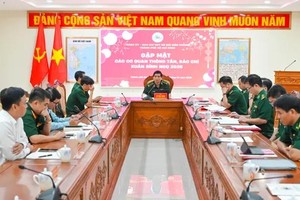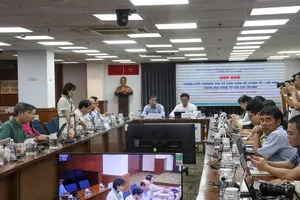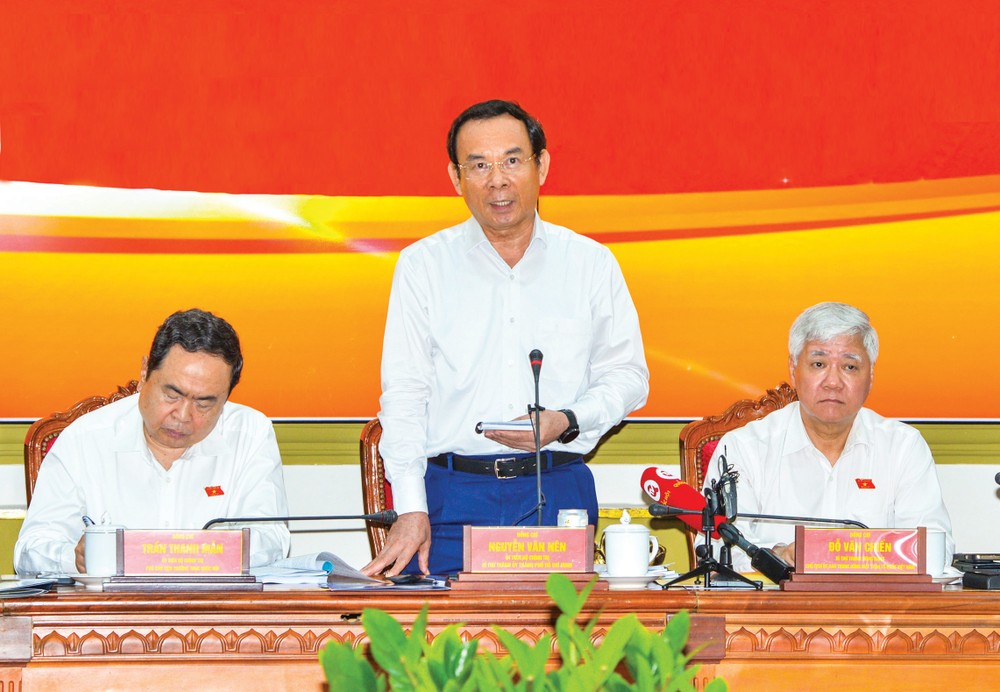 |
| Secretary of the Ho Chi Minh City Party Committee Nguyen Van Nen speaks at the meeting (Photo: SGGP) |
The Secretary made the proposal at a meeting between the National Assembly Delegation with the Standing Committee of the Ho Chi Minh City People's Committee on the implementation of the National Assembly‘s Resolution No. 88/2014/QH13 and Resolution No. 51/2017/QH14 on renewal program of textbooks of general education in the city.
Standing Vice Chairman of the National Assembly Tran Thanh Man; Secretary of the Ho Chi Minh City Party Committee Nguyen Van Nen; Chairman of the Central Committee of the Vietnam Fatherland Front Do Van Chien; Chairman of Ho Chi Minh City People's Committee Phan Van Mai; Chairwoman of the People's Council of Ho Chi Minh City Nguyen Thi Le together with representatives of central and local ministries, agencies, and localities were attending the meeting.
Great pressure on the population
At the meeting, Chairman of the People's Committee of Ho Chi Minh City Phan Van Mai shared, with a population of over 10 million people, the southern metropolis is facing many difficulties in bettering education and health tasks. Before the Covid-19 epidemic hit the city, the project on autonomy for education, healthcare and socio-culture facilities was implemented. After the epidemic, self-financing facilities have bumped into difficulties because there has been no source of income.
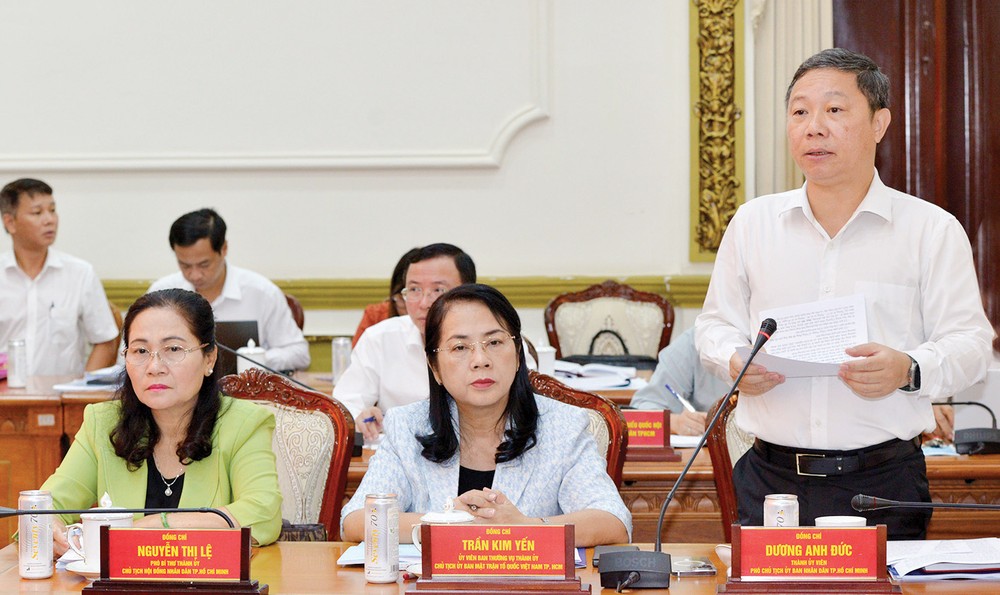 |
| Vice Chairman of Ho Chi Minh City People's Committee Duong Anh Duc speaks at the meeting (Photo: SGGP) |
To fulfill the target of 300 classrooms per 10,000 people of school age from 3 to 18 years old, HCMC needs 8,000 more classrooms. Currently, some districts still have schools with over 90 classes, with more than 50 students per class, much higher than the standards of the education sector.
Vice Chairman of Ho Chi Minh City People's Committee Duong Anh Duc said that currently, the allocation of quotas and staffing is based on permanent residence. However, being a large city, the city must arrange enough classrooms for not only for permanent residents but also immigrant workers’ children and the temporary population. Therefore, it is necessary to calculate resources and allocate planning and personnel targets based on actual population data.
Secretary of the Ho Chi Minh City Party Committee Nguyen Van Nen said that with an average annual population growth of nearly 200,000 people, including about 40,000 students; therefore, it is posing many challenges, including the long-term plan on supplementing the teaching staff, building facilities to meet the actual teaching needs. He thus proposed to be given the right to proactively issue policies to mobilize resources for investment and education development.
Improve the quality of teachers
According to the report of the Ho Chi Minh City Department of Education and Training, due to the impact of the Covid-19 epidemic, from 2020 to now, the face-to-face training of administrators and teachers to implement the 2018 General Education Program was discontinuity whereas the quality of online training is limited. In many institutions, teaching staff has not yet met the requirements of the new program in terms of quantity and structure. Some teachers are confused when implementing teaching in the direction of developing students' competencies and qualities, especially in integrated subjects.
From that fact, Director of Ho Chi Minh City Department of Education and Training Nguyen Van Hieu proposed to develop mechanisms and policies for teachers to teach 2 shifts a day, and at the same time provide budget compensation to pay salaries for visiting teachers in schools. Plus, there should be a separate financial mechanism for teacher training and retraining, which local administration can base on it to provide additional funding for educational institutions.
According to Prof. Huynh Van Son, Principal of Ho Chi Minh City University of Education, the education sector needs to re-evaluate the effectiveness of teacher training as well as difficulties in the assignment. On the basis of forecasting the need for training and retraining teachers in the coming period, the calculation and allocation of training targets are not only based on the training capacity of pedagogical schools, and local orders but depend on the context of socio-economic development, especially the fluctuations of a large city.


